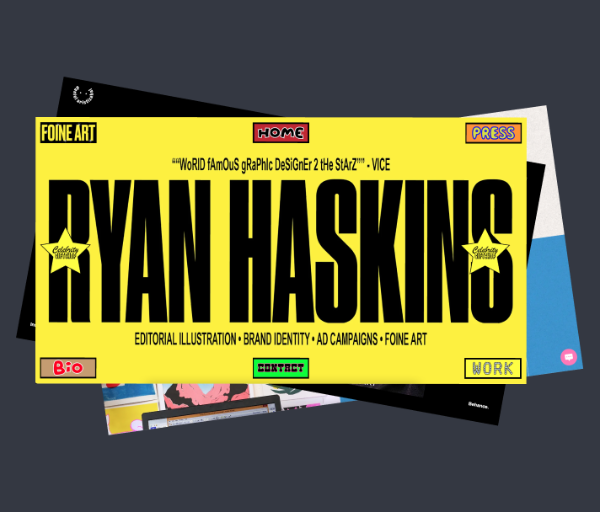How to Master What Does a Web Designer Do
What Does a Web Designer Do Resources
What Does a Web Designer Do
Responsive web development is a crucial aspect of modern website design, as it ensures that a website can adapt to different screen sizes and devices. With the increasing popularity of smartphones and tablets, it has become essential for websites to be responsive in order to provide a seamless user experience across all devices.

The Ultimate Guide to What Does a Web Designer Do
What Does a Web Designer Do
What is a Web Developer?
A web developer is a professional who specializes in building websites and web applications. They are responsible for the technical aspects of a website, including coding, design, and functionality. Web developers work closely with clients to understand their needs and create customized websites that meet their specific requirements. They are also responsible for ensuring that websites are user-friendly, easy to navigate, and perform well on different devices and browsers.
Web developers can specialize in different areas of web development, such as front-end development, back-end development, or full-stack development. Front-end developers focus on the design and user experience of a website, using languages such as HTML, CSS, and JavaScript. Back-end developers work on the server-side of a website, managing databases and ensuring that websites run smoothly. Full-stack developers have expertise in both front-end and back-end development, allowing them to work on all aspects of a website.
Skills Required for Web Developers
Web development is a challenging and dynamic field that requires a diverse set of skills. Some of the key skills needed to be a successful web developer include:
1. Proficiency in programming languages: Web developers should have a solid understanding of programming languages such as HTML, CSS, JavaScript, and PHP. They should also be familiar with frameworks and libraries such as React, Angular, and jQuery.
2. Design skills: Good design skills are essential for front-end developers, as they are responsible for creating visually appealing and user-friendly websites. Knowledge of design principles and tools such as Adobe Photoshop and Sketch is important for web developers.
3. Problem-solving abilities: Web developers need to be skilled problem solvers, as they often encounter technical challenges when building websites. The ability to think analytically and troubleshoot issues is crucial in this field.
4. Communication skills: Web developers need to work closely with clients, designers, and other team members to create websites that meet their needs. Strong communication skills are essential for understanding requirements, providing updates, and resolving any issues that may arise.
5. Time management: Web development projects often have tight deadlines, so web developers need to be able to manage their time effectively and prioritize tasks to meet deadlines.
Importance of Web Development
Web development plays a critical role in today’s society, as websites are essential for businesses, organizations, and individuals to connect with their target audiences. Some of the key reasons why web development is important include:
1. Increased visibility: Having a strong online presence is essential for businesses to reach a wider audience and attract new customers. Websites allow businesses to showcase their products or services and provide valuable information to potential customers.
2. Credibility: A well-designed and professional website can enhance the credibility of a business or organization. Websites that are visually appealing, easy to navigate, and optimized for search engines are more likely to attract customers and build trust.
3. Accessibility: Websites are accessible 24/7, allowing businesses to reach customers at any time, regardless of their location. This accessibility can help businesses expand their reach and attract new customers from different parts of the world.
4. Competitive advantage: In today’s competitive market, having a well-designed website can give businesses a competitive edge. A user-friendly website that provides valuable content and a seamless user experience can help businesses stand out from their competitors.
5. Innovation: Web development is constantly evolving, with new technologies and trends emerging regularly. Web developers play a crucial role in driving innovation and creating websites that are responsive, interactive, and engaging for users.
When it comes to choosing a website builder, cost is a major factor to consider. While some platforms can cost hundreds of dollars per month, there are also cheaper options available that provide all the essential tools needed to create a professional-looking website. In this article, we will discuss some of the cheapest website builders on the market and explore their features and pricing options.
Wix is one of the most popular and affordable website builders available today. With plans starting at just $14 per month, Wix offers a user-friendly interface and a wide range of customization options. Users can choose from hundreds of templates, add features such as e-commerce functionality and social media integration, and even create a mobile-friendly version of their site. Wix also offers a free plan that includes Wix branding on the site, making it a great option for those on a tight budget.
Another affordable website builder is Weebly, which offers plans starting at just $6 per month. Weebly is known for its easy-to-use drag-and-drop editor, which allows users to quickly create a professional-looking website without any coding knowledge. The platform also offers e-commerce functionality, SEO tools, and customizable templates. Weebly’s free plan includes Weebly branding on the site, but users can upgrade to a paid plan to remove this branding and access additional features.
Squarespace is another popular website builder that offers competitive pricing starting at $12 per month. Squarespace is known for its sleek and modern templates, which are perfect for creative professionals and artists. The platform also offers e-commerce functionality, SEO tools, and analytics to track website performance. Squarespace’s plans come with a free custom domain for the first year, making it a cost-effective option for those looking to establish a professional online presence.
WordPress is a versatile website builder that offers a free plan, making it one of the most affordable options available. Users can choose from thousands of free and premium themes, add plugins for additional functionality, and customize their site to suit their needs. WordPress is ideal for bloggers, small businesses, and e-commerce websites, as it offers a wide range of features and customization options. While WordPress does require users to purchase a domain and hosting separately, the platform itself is free to use.
When choosing a website builder, it’s important to consider your budget, as well as the features and functionality you need for your site. While some platforms may offer cheaper plans, they may lack certain features that are essential for your website. Before making a decision, be sure to compare different website builders and their pricing options to find the best fit for your needs.

What Does a Web Designer Do Explained
What Does a Web Designer Do
In conclusion, building a website involves several key details, from choosing a domain name to optimizing for performance. By understanding these details and following best practices in web development, you can create a functional and visually appealing website that effectively communicates your message to your target audience. Whether you are building a personal blog, a business website, or an e-commerce store, paying attention to these details can help you create a successful online presence.


